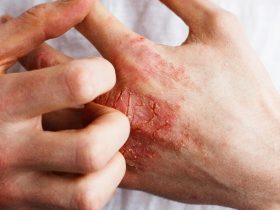Links also seen for initial concussion symptom severity and preconcussion anxiety
By Lori Solomon HealthDay Reporter
FRIDAY, March 8, 2024 (HealthDay News) — More moderate-to-vigorous physical activity (MVPA) early after a teen’s concussion may lower anxiety scores, according to a study published online Dec. 27 in Medicine & Science in Sports & Exercise.
Katherine L. Smulligan, P.T., from the University of Colorado School of Medicine in Aurora, and colleagues examined how MVPA during concussion recovery influences self-reported anxiety symptoms at follow-up assessment (42 days) among 48 participating youth (aged 13 to 18 years).
The researchers found an inverse and low correlation between MVPA and follow-up Patient-Reported Outcome Measurement Information System (PROMIS) anxiety subscale T-scores (r = â0.30). MVPA (β = â5.30), initial Post-Concussion Symptom Inventory score (β = 0.11), and preconcussion anxiety (β = 5.56) were associated with follow-up PROMIS anxiety subscale T-scores. No association was seen for sex (β = â2.60) with follow-up PROMIS anxiety subscale T-scores.
“There is so much in the body that can be affected by concussion, and everybody experiences symptoms a little differently, so it can be hard to study,” coauthor David Howell, Ph.D., also of the University of Colorado School of Medicine, said in a statement. “That means we must design studies that focus on understanding specific relationships and associations in a rigorous manner. Over time, when we do enough studies, we can begin to replicate findings and put a whole story together that can help inform best practices and standard of care.”
Abstract/Full Text (subscription or payment may be required)
Copyright © 2024 HealthDay. All rights reserved.







